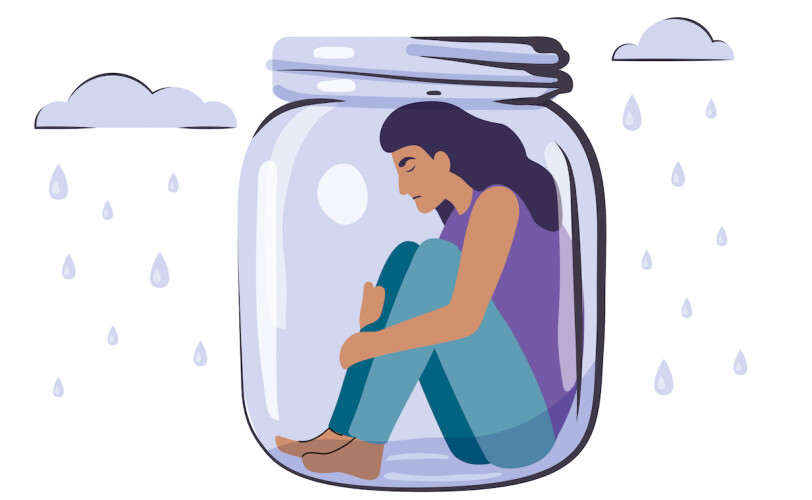Depressive doom
Depression is a mental health condition that can affect every individual. It is often misunderstood and can leave people feeling confused.

What is depression?
People often describe themselves as "having depression", however, this is not something that someone can 'catch'. On the contrary, depression is a set of symptoms that your mind and body facilitate as a reaction to your mental state. It is important to delve a little deeper to outline this clearly.
We, as individuals, are constantly exposed to a multitude of stimuli in our daily lives. Every day, words, images, and experiences come our way, and our minds work diligently to process them. This processing occurs through a combination of top-down and bottom-up mechanisms.
Bottom-up processing is mostly concerned with the basic analysis of sensory data. In essence, our brains decode the light patterns and visual changes that our eyes detect. Top-down processing, on the other hand, is where our mental processing becomes intricate. It involves integrating our previous knowledge and schemas to give meaning to these basic sensory data. This means that while some of what we perceive directly comes from the external world, a significant portion is also marked by our memories and experiences.
We do not see with our eyes, we see with our minds.
Given the complexity of this perception, it's not surprising that our internal dialogue plays a crucial role in shaping our reality. This ongoing conversation we have with ourselves can offer insight into our deepest beliefs and cognitive tendencies. And when it comes to mental health challenges like depression, this dialogue can be particularly revealing.
Individuals who have found themselves experiencing depressive symptoms more frequently tend to have a particular internal dialogue. One that attacks itself. "I am not good enough", "I am tired of feeling like this", "I cannot do anything right".
Where depressive symptoms such as apathy come to fruition is when the ego starts to attack itself. This is pain that the ego can not digest and subsequently shuts itself down. The unconscious rationalises like this e.g. It is much easier to feel nothing than to feel pain.
How can hypnosis help with depression?
Researchers have found that participants under a hypnotic trance displayed an inverse functional activity between the dorsal lateral prefrontal cortex and posterior cingulate cortex in their brains. This essentially means participants were more likely to do something without thinking about what this action may mean to them. This suggests an increase in cognitive flexibility.
In the case of an individual suffering from a depressive condition, such a cognitively enriching state may be life-changing. This allows clients to reassemble their cognitive beliefs that are triggering such depressive symptoms, work them down, and ultimately replace these thoughts with empowering beliefs.
The right therapist will pair the current scientific consensus with your individual needs to reach an effective equilibrium, allowing you to see qualitative growth in your life. It will look something like this: A thorough understanding of you + a thorough understanding of scientific benchmarks = measurable improvements.
To explore how this approach can benefit you personally and get a custom-tailored experience, feel free to visit my profile.

Find a hypnotherapist dealing with Depression
All therapists are verified professionals





